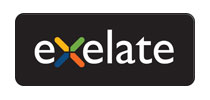 eXelate announced today that it has raised a “$15 million second round of funding led by Silicon Valley’s Menlo Ventures with participation of Israel’s Carmel Ventures, who led the company’s $4 million ‘A’ round.” Read the release.
eXelate announced today that it has raised a “$15 million second round of funding led by Silicon Valley’s Menlo Ventures with participation of Israel’s Carmel Ventures, who led the company’s $4 million ‘A’ round.” Read the release.
CEO Meir Zohar discussed the implications of the funding as well as impact of the data market on the consumer.
AdExchanger.com: Beyond enhancing eXelate’s “data marketplace footprint, as well as expand[ing] the functionality of its robust data management toolset,” for what will eXelate use the $15 million in new financing ?
MZ: One of the areas we’d like to commit to is end-user education, which is as important to us as sales and marketing. Beyond that, we’ll commit resources to R&D so that we can offer our publisher and advertiser partners better tools to manage and utilize their data. We strongly believe that publishers need better tools to centralize audience data management, pixel monitoring and privacy functionality.
Why was Menlo Ventures the right firm to lead this round?
We were really impressed by the Menlo team and felt they would be a great complement to our initial investors from Carmel Ventures. Menlo Ventures has a very strong digital media portfolio, which includes companies like Invidi, DataXu, and YuMe who are really shaping the future of online advertising and helping to drive the data driven ad ecosystem. With this experience comes a lot of industry knowledge, insight and connections, which is already helping eXelate. Beyond that, having a strategically-focused guy like Mark Siegel on your board adds a great deal of value and strong presence in Silicon Valley that we can leverage from our New York “home base”.
Is eXelate profitlable? If not, when do you plan on being profitable?
As a privately held company, I can’t really comment on profitability. But I can say that revenue is increasing exponentially every quarter, and revenue-wise, we’re ahead of our current forecast for 2010.
How is eXelate data benefitting the consumer?
Internet consumers have gotten used to free, vibrant content, yet content creators, have been hurt by declining advertising CPMs and subscription revenues that have failed to materialize. By working with publishers, eXelate is enabling them to generate more revenue for their content, ensuring that they can continue to deliver great content under their own terms. Additionally, I am sure we all have reached the saturation point with irrelevant ads that clutter a page. Data can help to deliver more relevant, higher value ads so that less real estate can be used to generate the same impact – creating a better user experience across the board. A big failure of our industry has been clearly communicating this benefit to consumers and being transparent about what we are doing and how it really impacts them.
Do you see a publisher-focused, white-label data management platform from eXelate as an important part of its future? Is it difficult to target advertisers and publishers as clients simultaneously?
Yes, we believe that in many cases the transparency provided via a publisher driven “white labled” market place, such as eXelate’s Private Marketplace (teXi:PM) enables publishers to get into the audience data game on their own terms while adding a great deal of confidence to buyers who seek premium, directly measured data straight from the source. We are bullish on this segment of our business and feel like it is a great complement to our overall eXchange.
Truth be told, publishers and advertisers understand that they need each other, and both play an important part of the targeting process. Therefore, it’s been far less difficult than what one might imagine, even though each has a distinct value proposition that we appeal to. Publishers are concerned about control, access and revenue; advertisers are driven by ROI. Both want efficient and effective ways to deliver bottom line results while respecting consumer privacy at the highest level. I think we have done a great job balancing these demands . . . and as shown by our growth our investors, partners and customers seem to agree!
By John Ebbert









